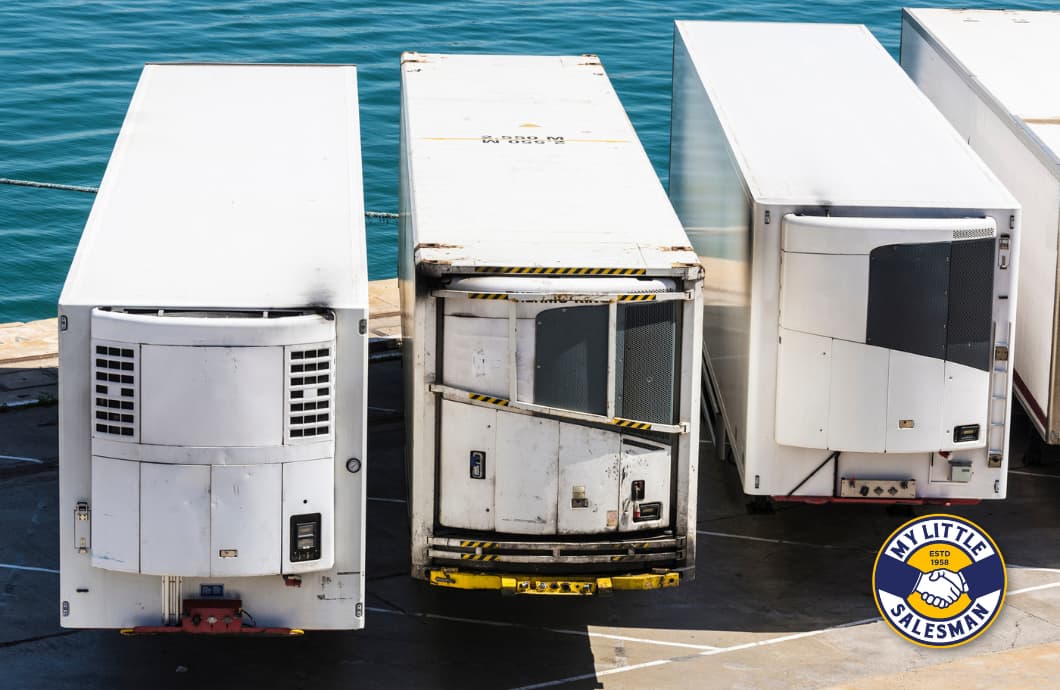
Table of Contents
Reefer trailers are one of the backbones of modern freight shipping for perishable goods.
A used reefer trailer (the industry term of "refrigerated trailer") is just that—a mobile cold storage unit vital for the transport of perishable goods across vast distances.
But finding one that combines reliability with value requires a keen eye and informed decision-making.
In this buying guide, let's check out the process of buying a used reefer trailer—delving into inspection checklists, maintenance records, and the crucial step of professional evaluation.
We'll end this guide by checking out some of the best places to find quality models—from auctions to online platforms—where you can find one (or many) for a company for sale or rent.
Disclaimer: Spot Lemons, But Let the Pros Greenlight Winners
Before we hop in, we'd like to clarify that while this guide can help you save potentially thousands in inspection fees by helping you exclude clear losers, it should not be the final say before picking a winner. Always run any used commercial equipment you want to buy past an experienced mechanic. They can spot red flags you may have missed and provide additional insights on said model. We'll speak more at length about what this looks like later in this article.
Ok, enough intro—let’s help you select the best used reefer trailer for your needs.
When looking for a used reefer trailer to buy for your needs, a careful inspection is needed to ensure functionality and value. Examining reefer trailers for sale is a multi-faceted process encompassing several key inspections that safeguard the integrity of the trailer and, in turn, protect the perishable cargo it's intended to carry.
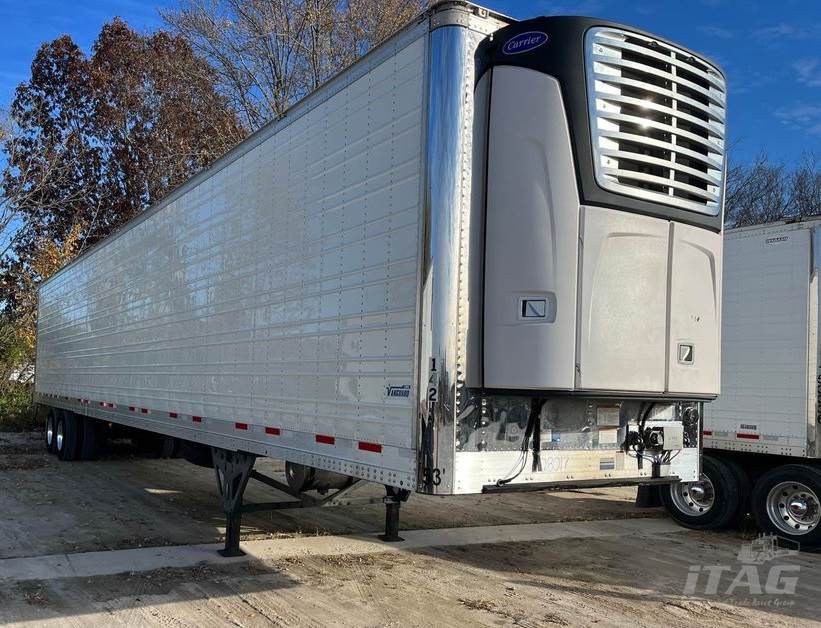
The heart of a reefer trailer lies in its refrigeration system, making proper functioning non-negotiable. Before embarking on any journey, a rigorous self-diagnostic pre-trip on the reefer unit should have mandatory to uncover any mechanical discrepancies.
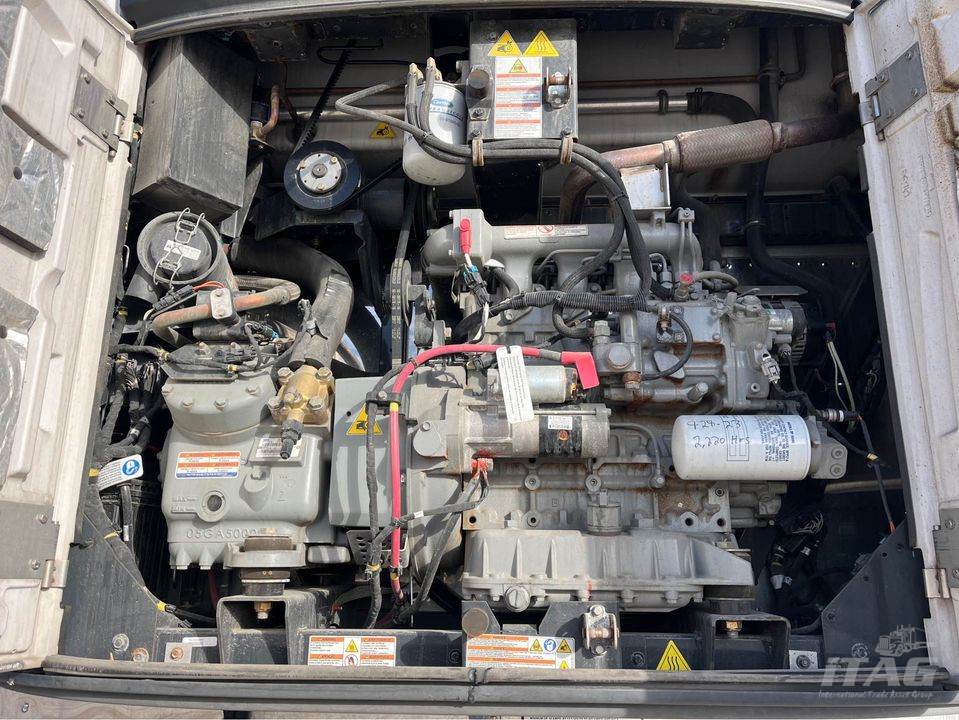
To quickly inspect a reefer unit, start by turning it on and checking if it runs smoothly without odd noises. Look for any signs of damage or leaks around the unit's hoses and belts. Make sure it can reach and hold the desired temperature by setting it and checking a few minutes later.
The structural physique of the reefer trailer equally demands a comprehensive examination. Look for signs of external damage or leaks. Door functionality is critical—hence, hinges, seals, and latches must be in good condition for security and proper temperature control. The trailer floor should be inspected for damages or deformities that could jeopardize the safe transport of goods.
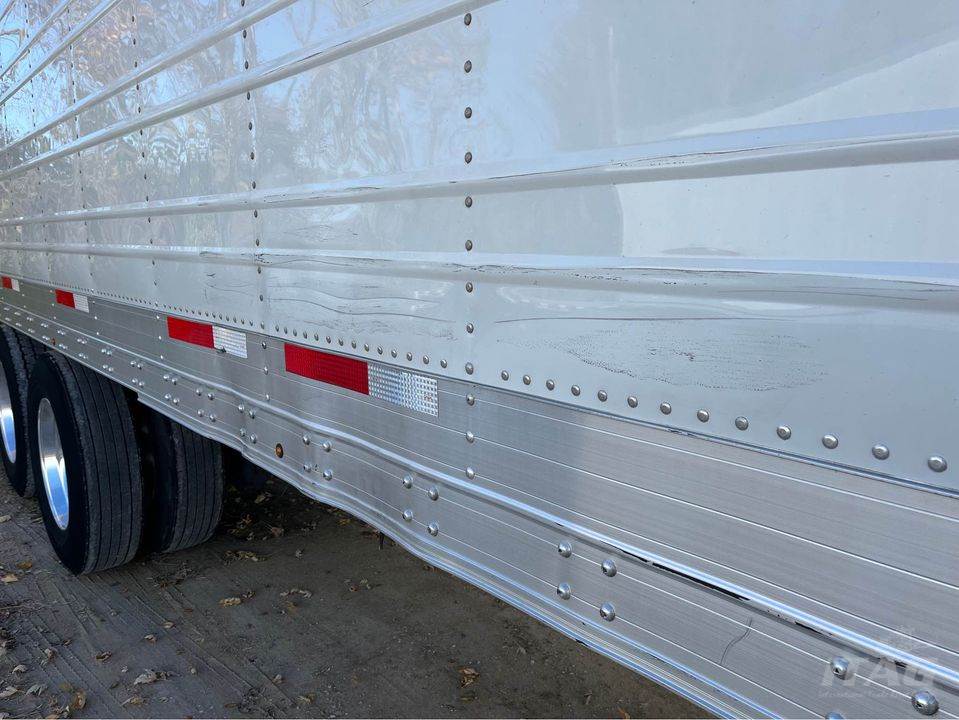
The landing gear must be fully functional and stable. Tires, wheels, and mud flaps need to be in good condition, not showing signs of excessive wear or damage, which could indicate deeper hidden issues.
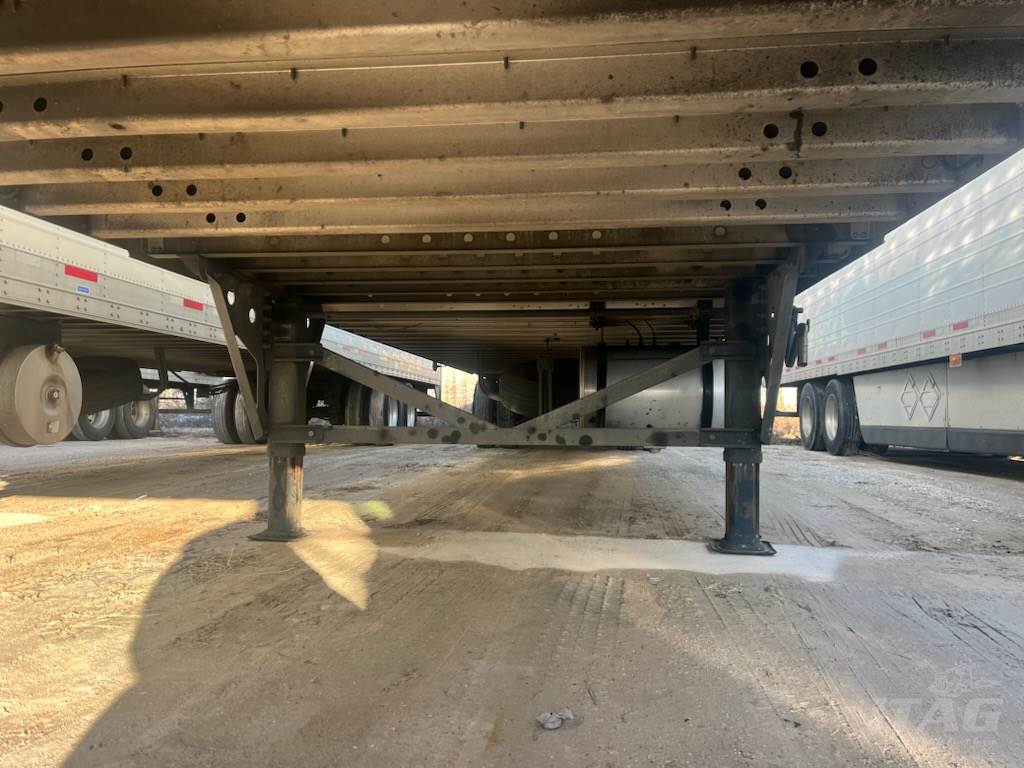
Precision in temperature control can make or break the effectiveness of reefer trailers. Advanced cooling systems safeguard cargo temperature during transit, so their functionality is a main concern.
Modern reefer trailers often come with insulation and refrigeration units crafted by top-tier manufacturers such as Thermo King or Carrier. Make sure the trailer is outfitted with quality insulation for maintaining desired temperatures.
Now with the refrigeration unit covered, it is time to assess the condition of the overall trailer—after all, it doesn't matter if the reefer unit good if the trailer itself isn't.
While one can understand quite a bit about the status of the state of a reefer trailer with a visual inspection, this is when the help of an experienced trailer mechanic or technician can help. Experienced mechanics can read the signs that point to hidden issues—such warped trailer elements that point to leaks or rust.
A major part of ensuring the condition of trailer body and how well it can insulate cargo against the outside temperatures is a record of past maintenance and upkeep. If the documentation of past upkeep is lacking, it's safe to assume that worst a buyer wouldn't have reason to think otherwise.
When requesting documentation, ask for a thorough service record as well as records of any accidents or repairs the trailer has undergone throughout its working life.
If a reefer trailer you're considering has a mechanic issue, this should be one of the first things you discuss with the dealer or seller. Ask them to elaborate on the full nature of the mechanical issue to their understanding. Later, you can compare the seller's assessment of the problems with the report from your professional mechanic inspection.
If the mechanical issue is not a deal-breaker and fixable, this can still be powerful tool in price negotiations. But if an arrangement is made for the trailer to be repaired, always insist that the repair is performed according to the input of an impartial mechanical professional.
Through any negotiations or discussions of issues, remain respectful and courteous.
The cost of ownership is often overlooked by trailer buyers—as fuel efficiency is not as much of an issue. For a reefer trailer, however, the efficiency of the refrigeration unit is paramount to the proper performance of the trailer, making an investigation into which reefer units are best important.
For most refrigeration units on the market, ample customer reviews are available on the internet. Major brands, such as Thermo King, will have a large pool of experienced users to attest to which models are the best and which you should avoid.
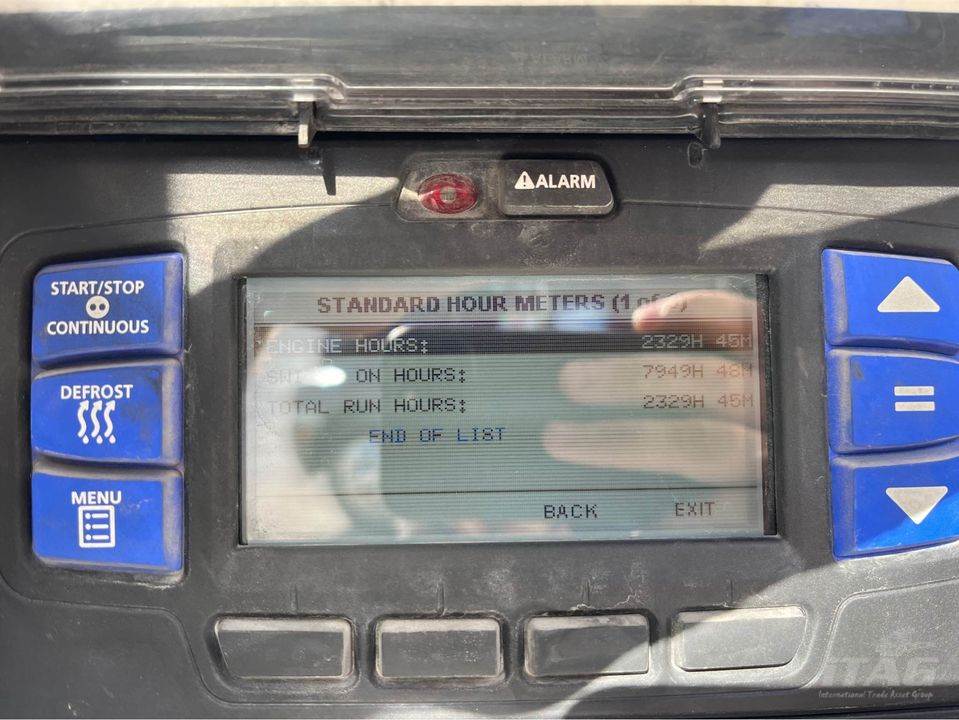
Have you narrowed your field of reefer trailers you're considering buying? Well, as mentioned earlier in this guide, it is time a step you cannot afford to skip—submitting these to your professional mechanic for inspect.
Though this guide can carry you through the process of narrowing your field of candidates, the last mile of the buying process needs to include the inspection of the reefer trailer from an experienced mechanical professional. Expert mechanics have built their careers on identifying issues—both their causes and what is required to remedy them. This is knowledge you need to make a confident purchase and avoid winding up with a money pit.
Once you have found a professional mechanic based on reviews and referrals, they will need access to the reefer trailer. They will will inspect the refrigeration unit, the temperature control mechanism, air chute system, and the overall condition of the trailer's ability to insulate and haul cargo from the outside elements.
The main parts of their inspection should include:
- The reefer unit and its associated temperature controls
- The condition of the trailer body and insulation
- The condition of the fuel tanks and efficiency skirts
- Any signs of fluid leaks—present or past
- Proper specified weight in compliance with load scales
- The proper function the overall electrical systems—including lights
- The state of the floor of the trailer as well as the doors
Always insist on being able to have a mechanical inspection from an independent third party that is not associated with the seller. If the seller refuses, this should cause you to reconsider purchasing said reefer trailer.
In the world of cold chain logistics, finding a used reefer trailer for sale presents an array of options, ensuring you locate the right fit for your business needs and budget.
Whether you're a fleet manager looking to expand your capabilities or an independent operator seeking cost-effectiveness, the right reefer trailer is out there.
Depending on your preference, you can explore dealerships, auctions, private sellers, and online marketplaces—each offering unique advantages. These sources cater to different requirements, from price points to trailer conditions, providing you with the flexibility to choose based on your specific criteria.
For those who prioritize a blend of reliability and selection, used reefer trailer dealerships are prime locations. Renowned establishments boast a diverse assortment of reefer trailers from trusted brands.
Dealerships not only provide a variety of options but can also retrofit trailers with new cooling units, adapting to your specific refrigeration needs.
What sets reputable dealerships apart is their commitment to quality. In many instances, each used reefer trailer undergoes thorough inspection and certification, particularly focusing on the suspension and internal systems to ensure peak performance.
With online auction platforms, it's simpler than ever to find a reefer trailer that aligns with your budgetary constraints. This approach, however, demands diligence. Prospective buyers must research and engage with reputable auction sources to avert scams.
Companies and private sellers can be a goldmine for deals—often listing used reefer trailers at substantially lower prices than dealerships or auctions. However, here is especially when it pays to be cautious.
When dealing with private sellers, the duty of inspecting the reefer unit, the heart of the trailer, and the rest of the components, falls on you without much wiggle room for recourse. Tackling any pre-existing issues before you buy is the best way to prevent inheriting unresolved problems that could compromise the integrity of your perishable cargo.
Online marketplaces streamline the pursuit of a used reefer trailer by offering expansive inventories accessible at a click. These digital platforms enable buyers to scout out deals, compare prices, and assess conditions all from the convenience of a computer or mobile device.
By filtering the vast selection, drivers and fleet managers can zero in on the types or brands of trailers that best suit their needs. When diving into online marketplaces, ensure you're engaging with credible sellers to dodge the pitfalls of overpricing or scams. With judicious use, online resources can be instrumental in securing a suitable used reefer trailer, ensuring profitability and efficiency in your transport endeavors.
Let's summarize what to look for when buying a used reefer trailer:
- Structural Integrity: Check for damage to the frame, walls, roof, and floor. Look for signs of leaks, rust, and prior repairs.
- Reefer Unit: Test the unit's functionality, run hours, and fuel efficiency. Inspect for leaks or damage. Consider emissions regulations in your area.
- Tires & Brakes: Assess tread depth, brake wear, and overall condition.
- Maintenance History: Request records to understand past service and potential issues.
- Overall Condition: A thorough inspection will reveal any cosmetic or hidden problems that could impact the trailer's value and performance.
The average lifespan of a reefer trailer is around 8 years, which generally translates to about 40,000 hours of use. This lifespan depends on factors like the frequency of use, quality of maintenance, and operating conditions. Well-maintained reefers can last longer, while those subjected to harsh conditions may have a shorter lifespan.
Reefer trailers with over 30,000 hours on the refrigeration unit are generally considered to have high hours. High-hour reefers are more likely to need significant repairs and may be less reliable overall. When purchasing a used reefer, it's wise to prioritize trailers with lower hours for better long-term performance and reduced maintenance costs.
You're on your way to being a used reefer trailer pro!
If you made it this far, consider yourself an informed used reefer trailer buyer!
However, this guide isn't meant to be your last step before signing on the dotted line—just to help you spot a lemon before paying a professional mechanic to tell you.
Once you're ready to begin shopping for used refrigerated trailers for sale, your friends from My Little Salesman have your back. Since 1958, My Little Salesman has been connecting buyers and sellers of semi trailers, commercial trucks, heavy equipment, parts, accessories, and much more.